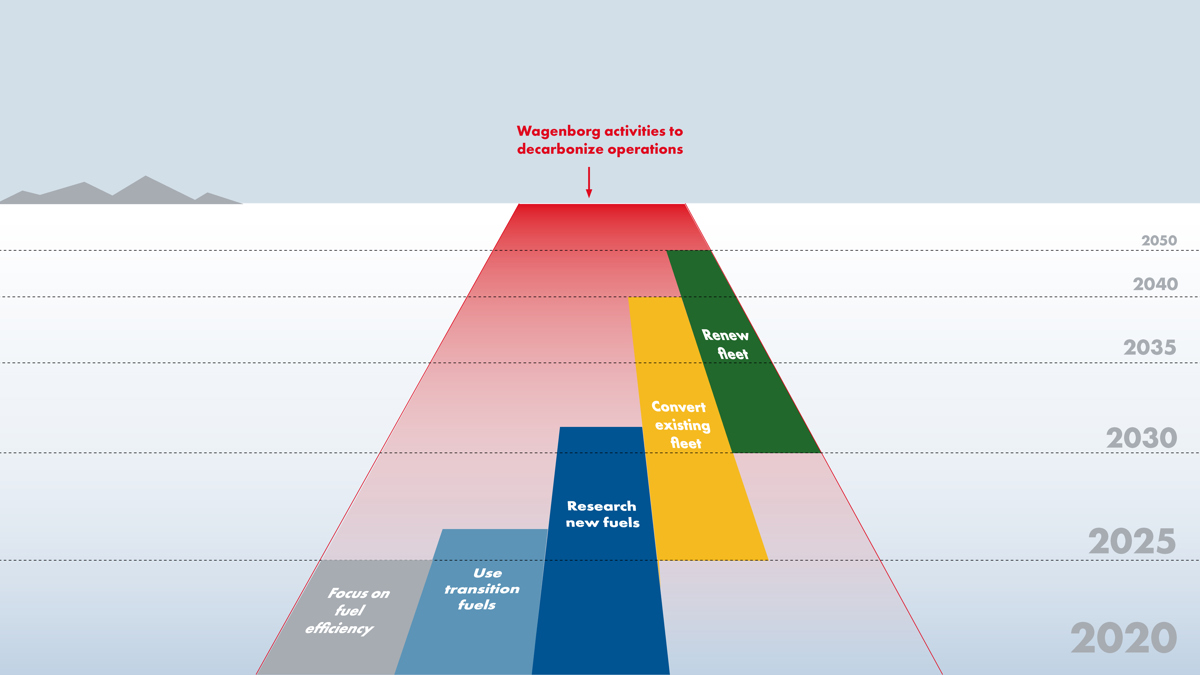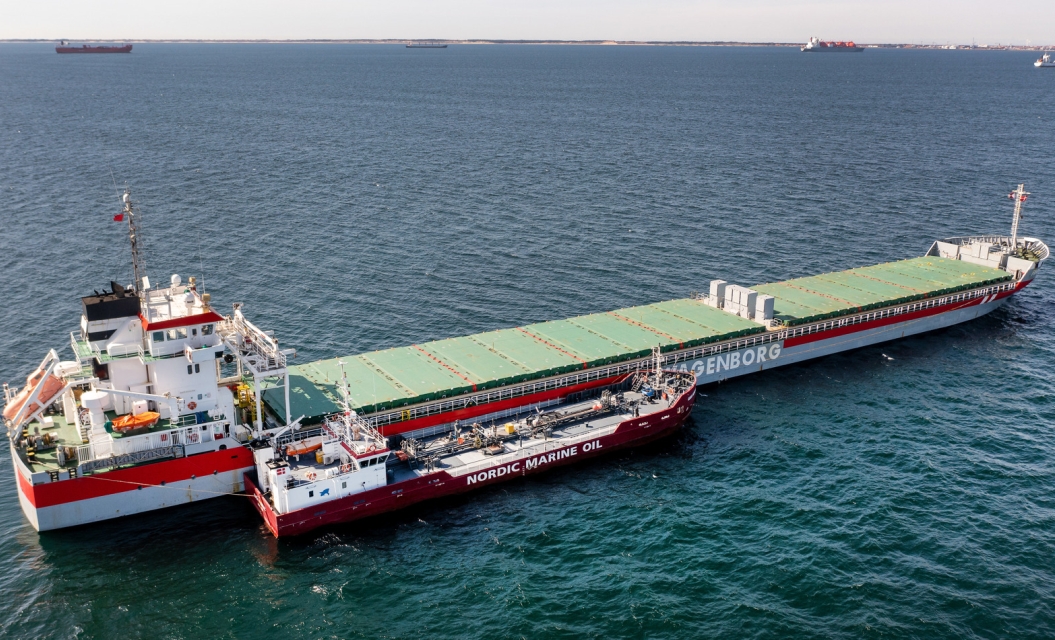One of Royal Wagenborg’s F-class vessels has completed the company’s first transatlantic voyage sailing on co-processed marine fuel. The shipment, which was requested by a client, illustrates the ease of switching to this type of drop-in biofuel and reduced greenhouse gas emissions on this specific voyage by 68 per cent.
Wagenborg considers the recent use of biofuels as a first step in short-term success when it comes to CO2 reduction. Significant CO2 reductions can only be achieved when actions are taken in the entire supply chain. That is why the company says it continues to actively discuss the possibility of biofuels with its customers.
Also read: VIDEO: Bow of Wagenborg’s EasyMax 3 transported to quayside
No investment in onboard equipment
According to Wagenborg, its entire fleet of multi-purpose (MPP) vessels is able to bunker the ISO 8217 compliant co-processed marine fuel, since no investment in onboard equipment is required to use this sustainable drop-in marine fuel.
The fuel is produced using ISCC PLUS certified raw materials, such as vegetable oils, used cooking oil, or animal fat, which may reduce GHG emissions by up to eighty per cent over the lifecycle, when compared to fossil fuels.
Also read: Wagenborg to convert another platform supply vessel
Sustainability strategy
By following five consecutive steps, Wagenborg aims to achieve a forty per cent CO2 reduction by 2030 and seventy per cent by 2050, compared to base year 2008. So far, the company’s fuel efficiency programme and the first use of biofuels resulted in a CO2 reduction of about 26 per cent compared to the year 2008.

Pictures by Wagenborg.
Also read: Wagenborg adds another four multi-purpose vessels to its fleet








